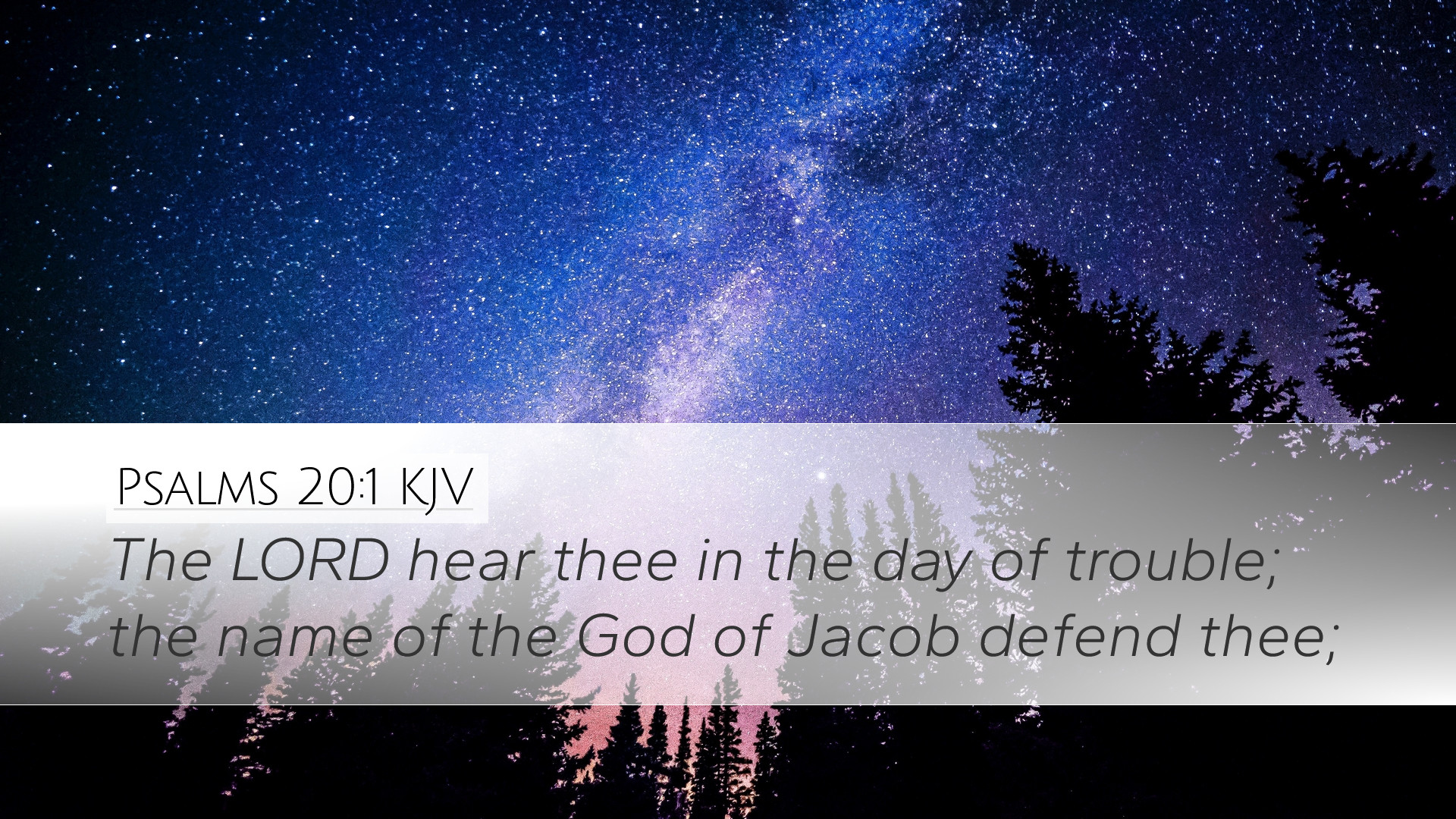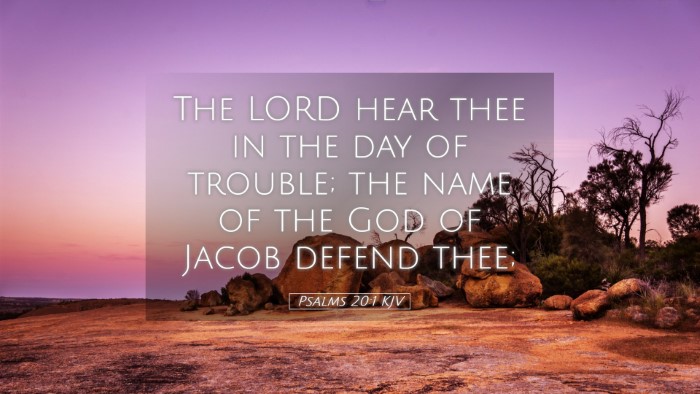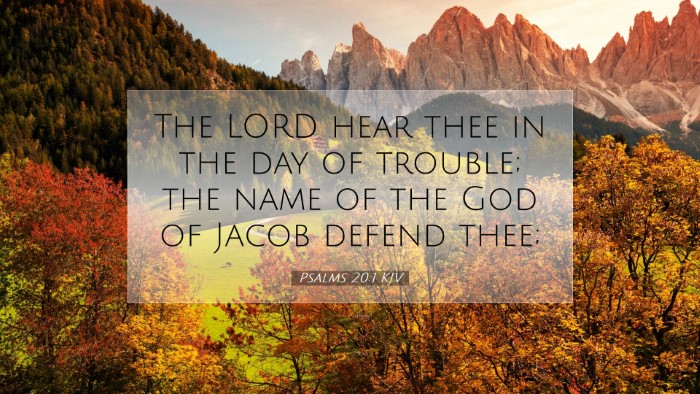Commentary on Psalms 20:1
Verse Text: "The Lord hear thee in the day of trouble; the name of the God of Jacob defend thee."
Introduction
The first verse of Psalm 20 sets the tone for this prayerful psalm, which is a royal psalm often associated with King David. It emphasizes the pivotal role of divine assistance in times of trouble. This commentary draws insights from renowned public domain scholars including Matthew Henry, Albert Barnes, and Adam Clarke.
Main Themes
- The Assurance of Divine Hearing:
Matthew Henry emphasizes that the psalm opens with a profound assurance that God hears His people in times of distress. This divine attentiveness is a source of comfort and hope, particularly when believers feel overwhelmed by circumstances.
- The Nature of Trouble:
Albert Barnes portrays trouble as a universal human experience. He notes that the psalm addresses not just physical enemies but also spiritual and emotional difficulties. Understanding this broader view helps believers to relate personally to the text.
- The Significance of 'The Name of the God of Jacob':
Matthew Henry points out that invoking the name of God connotates His authority and power. The mention of Jacob emphasizes God's covenant faithfulness, reminding the believer of the lineage through which God’s promise has been fulfilled.
Exegesis of Key Phrases
"The Lord hear thee"
Adam Clarke notes that this phrase indicates a direct plea for God’s attention. The tone is not merely hopeful but assertive in the knowledge that God is both willing and able to hear His people's prayers.
"In the day of trouble"
According to Barnes, the 'day of trouble' signifies times of great need and distress. The psalmist acknowledges the inevitability of such days in a believer's life, reinforcing the need to seek God in life's challenges.
"The name of the God of Jacob defend thee"
Here, Clarke mentions that the term 'defend' implies active protection. This reflects the warrior aspect of God, who not only listens but also acts on behalf of His people, shielding them from harm as promised throughout the Scriptures.
Theological Implications
This verse encapsulates several theological realities vital for pastors, students, and scholars:
- The Nature of Prayer:
Psalms 20:1 serves as a model for prayer, highlighting the importance of lifting petitions to God, trusting in His character and His covenant.
- Covenant Relationships:
The mention of Jacob emphasizes the faithfulness of God to His covenant people. It serves as a reminder that believers are part of a heritage that includes divine provision and protection.
- The Assurance of Support:
This text offers profound assurance that God’s intervention is not limited to ancient Israel but extends to all believers, regardless of their circumstances.
Practical Applications
For today’s pastors and theologians, this verse can be a source of application in several areas:
- Counseling in Times of Trouble:
When conducting spiritual counseling, this verse provides a powerful reminder to counsel individuals that God hears them, encouraging faith amid adversity.
- Encouraging Prayer:
This psalm serves as a call for communal prayer, particularly when facing challenges, reminding congregations of the strength found in collective supplication.
- The Ministry of Presence:
It is crucial for church leaders to embody the truth of this verse by being present and supportive during their congregation's times of trouble, echoing God's promise of defense and support.
Conclusion
Psalms 20:1 stands as a testament to God’s readiness to respond to His people. The insights from Henry, Barnes, and Clarke collectively underscore the vital truths of divine attentiveness, protection, and the importance of invoking God's covenant names in prayer. For pastors, students, and scholars, this verse is not just a historical text but a living promise that continues to resonate through the ages.


